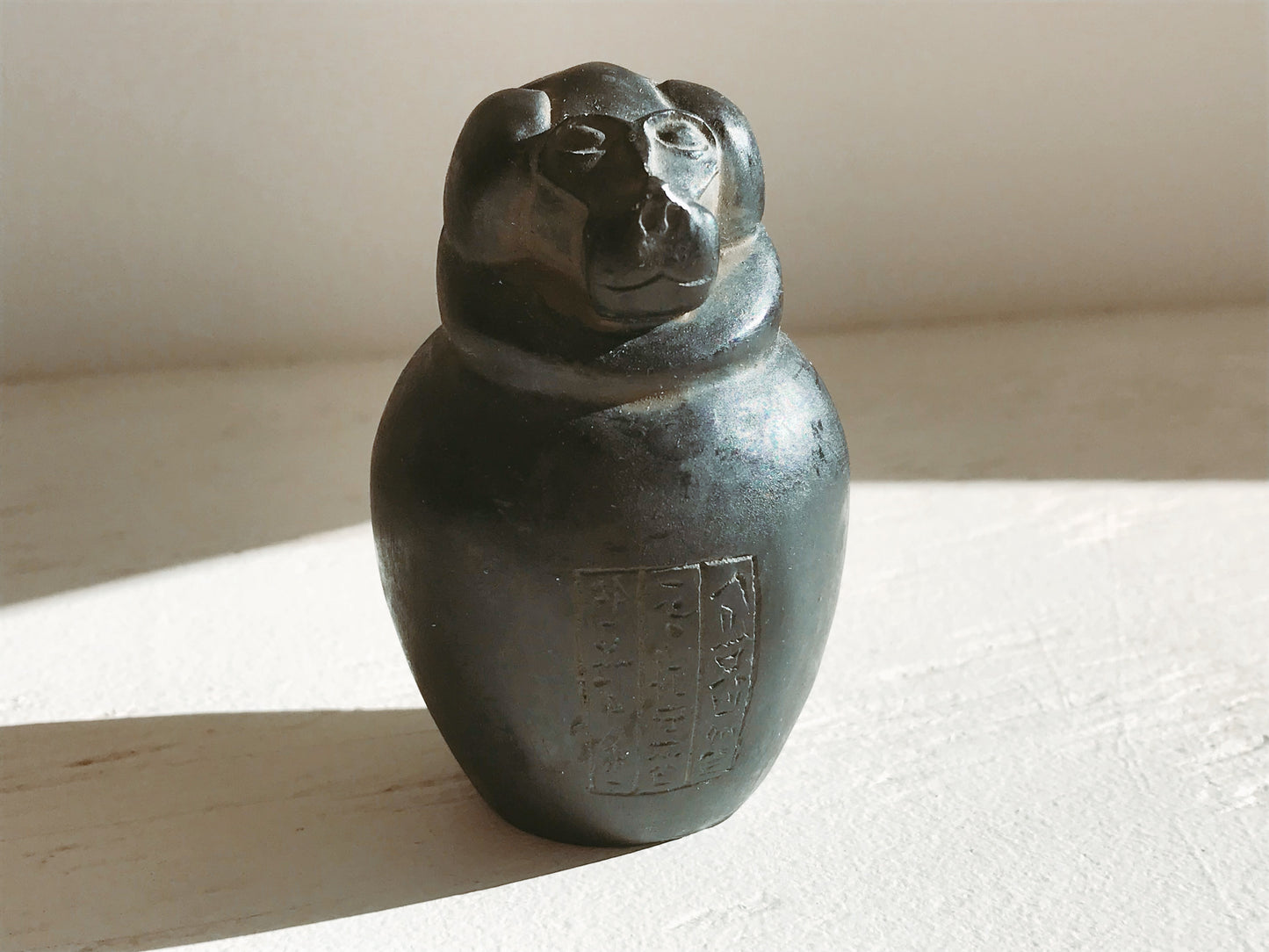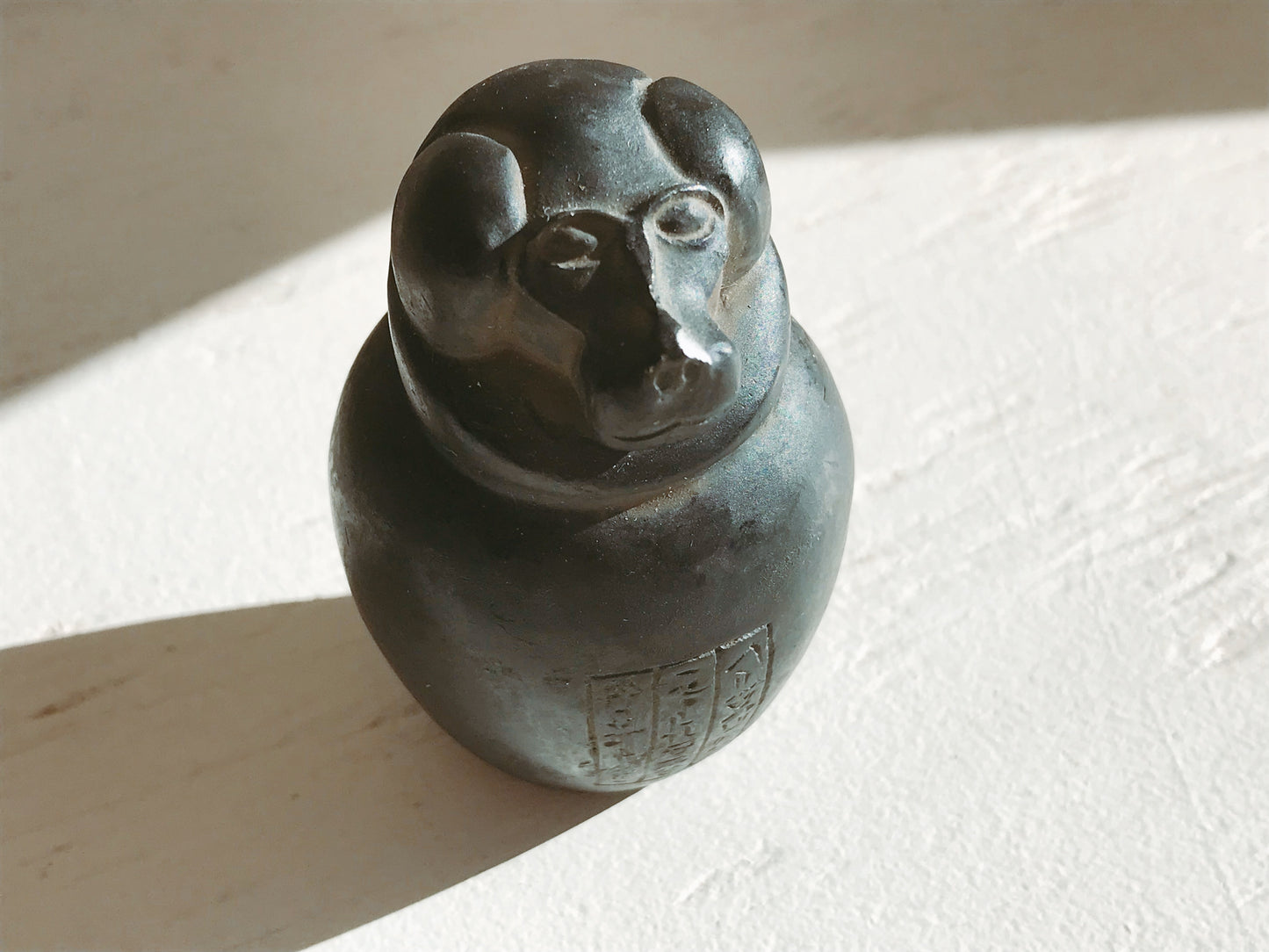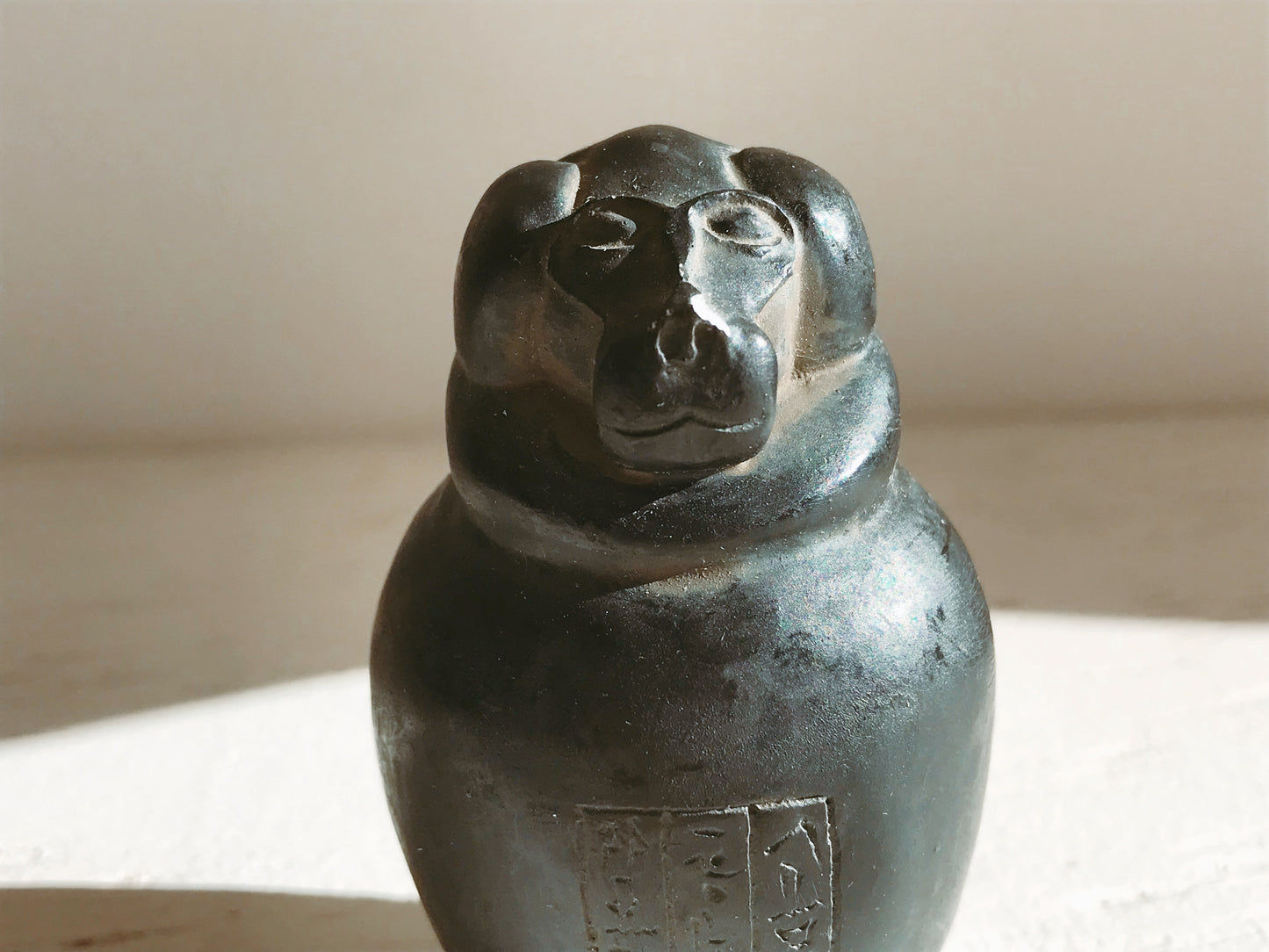Ocotillo Botánica
Hapi Canopic Jar Statue
Hapi Canopic Jar Statue
Historical Reproduction - Vintage - 2001
DeAgostini, The Glory of Ancient Egypt, Collectors Figurine
Issue No. 12 - Statue Only
Approximately 3” tall
HAPI
Hapi, also known as Hapy or Hapi-ankh, is one of the Four Sons of Horus, a group of ancient Egyptian deities associated with the protection of the deceased and the organs essential for their journey to the afterlife. Hapi is specifically linked with the protection of the lungs and was often depicted as a mummified figure with the head of a baboon or as a full baboon, symbolizing intelligence and wisdom.
In Egyptian mythology, Hapi is associated with the North and was under the protection of the goddess Nephthys, who guarded his canopic jar containing the lungs. As one of the divine guardians of the vital organs, Hapi played a crucial role in ensuring the preservation and integrity of the deceased's body for their journey through the underworld and into the afterlife.
The representation of Hapi as a baboon reflects the Egyptians' belief in the animal's connection to wisdom and knowledge. Baboons were observed sitting in a pose resembling that of scribes, leading the Egyptians to associate them with learning and intelligence. As a result, Hapi was revered not only for his protective role but also as a source of divine guidance and insight.
Hapi's presence in funerary rituals and texts underscores the importance of proper mummification and the preservation of the body in ancient Egyptian religious beliefs. By safeguarding the lungs, Hapi ensured that the deceased could breathe and receive sustenance in the afterlife, enabling their continued existence among the gods.
The worship of Hapi and the other Sons of Horus reflects the Egyptians' profound reverence for the cycle of life, death, and rebirth. Through their rituals and religious practices, they sought to ensure the eternal well-being and prosperity of the deceased, affirming their belief in the continuity of existence beyond the mortal realm.
Couldn't load pickup availability
Share



EMAIL SIGNUP


